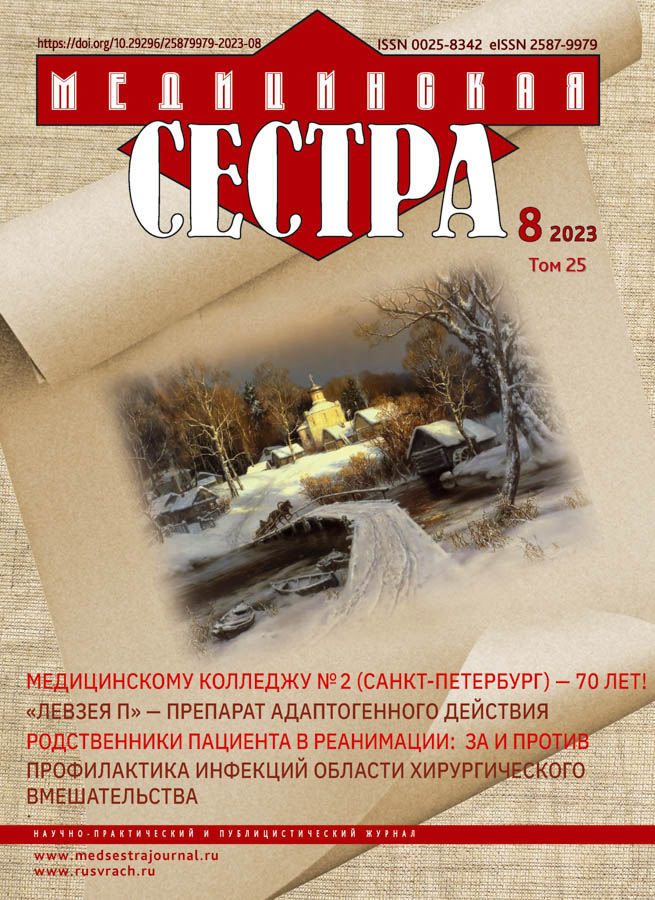Study of differences in sleep disorders in junior and senior students of the Medical Institute
- Authors: Zhanybaeva S.M.1, Ostrovskaya I.V.1,2
-
Affiliations:
- Medical Institute of Peoples’ Friendship University of Russia named after Patrice Lumumba
- The branch of Military Medical Academy in the city of Moscow
- Issue: Vol 25, No 8 (2023)
- Pages: 19-22
- Section: Research
- URL: https://journals.eco-vector.com/0025-8342/article/view/624515
- DOI: https://doi.org/10.29296/25879979-2023-08-04
- ID: 624515
Cite item
Abstract
The article describes the results of the analysis of sleep disorders features in junior and senior students, which was conducted on the basis of PFUR Medical Institute. We used the Pittsburgh Sleep Quality Index (PSQI) to study sleep disorders. During the study, the features of sleep disorders were assessed according to the following components of the questionnaire: subjective assessment of sleep quality; sleep latency (the time required to fall asleep); sleep duration; percentage of time spent in bed when a person sleeps; the presence of various sleep disturbances; the taking of sleeping medicine; daytime dysfunction (violation of daytime functioning due to poor sleep quality). According to the results of the study, the hypothesis was confirmed: junior and senior students have different features of sleep disorders. Senior students are more likely to disrupt daytime functioning due to insufficient sleep duration and other sleep disorders. Junior students are tend to use sleeping medicine more often due to sleep disorders.
Keywords
Full Text
About the authors
Saltanat M. Zhanybaeva
Medical Institute of Peoples’ Friendship University of Russia named after Patrice Lumumba
Author for correspondence.
Email: zhanybaeva.saltanat@gmail.com
ORCID iD: 0000-0002-5044-7922
Bachelor of Science in Nursing
Russian Federation, MoscowIrina V. Ostrovskaya
Medical Institute of Peoples’ Friendship University of Russia named after Patrice Lumumba; The branch of Military Medical Academy in the city of Moscow
Email: zhanybaeva.saltanat@gmail.com
ORCID iD: 0000-0001-7932-4216
Candidate of Psychological Sciences, МВА; senior lecturer, Nursing Management Department, Medical Institute, RUDN University; associate professor, Nursing Management Department, the branch of Military Medical Academy in the city of Moscow
Russian Federation, Moscow; MoscowReferences
- Kovalzon, V.M. The forgotten founder of biochemistry and somnology. Priroda: a monthly natural science magazine. 2012; 5 (1161): 85–89.
- Kovalzon, V.M. Fundamentals of somnology: physiology and neurochemistry of the “waking-sleep” cycle. Moscow: BINOM. Laboratory of Knowledge, 2012; 239.
- Rybakova K.V., Goncharov O.V., Vetrova M.V. Sleep disorders in addicts of various psychoactive substances: methodological recommendations. St. Petersburg: Federal State Budgetary Institution V.M. Bekhterev National Research Medical Center for Psychiatry and Neurology of the Russian Federation Ministry of Health., 2020; 25
- Sidorova, I. Precious sleep. Review of the drug market for insomnia following the results of 9 months of 2013. Remedium. Magazine about the Russian market of medicines and medical equipment. 2013; 11: 38–43.
- Lyshova O.V., Lyshov V.F., Pashkov A.N. Screening study of sleep disorders, daytime sleepiness and sleep apnea syndrome in first-year medical university students. Medical news. 2012; 3: 77–80.
Supplementary files







